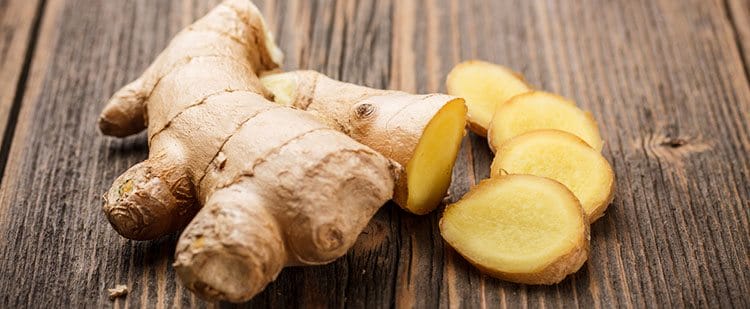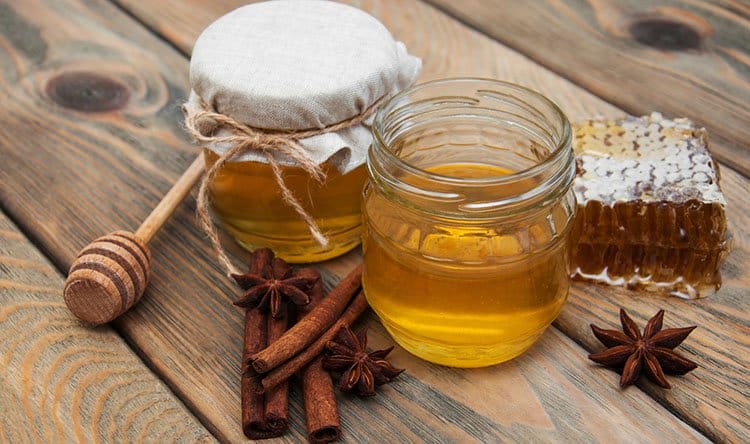Discover 10 Magical Home Remedies for Coughing You Haven’t Tried Yet
Home remedies can offer significant relief from coughing during the cold and flu season, bypassing the need for conventional cough medicine.
This informative blog post explores 10 magical remedies that may surprise you with their effectiveness. From mustard seed tea to honey’s soothing properties, these natural solutions are worth trying for quick relief from coughs and colds.
Harnessing the Power of Mustard Seeds

While many people may not have heard of using mustard seeds as a remedy for coughs, the naturally occurring sulfur-containing compounds in these tiny seeds can work wonders in loosening thick secretions in the respiratory tract. Mustard seed is a natural expectorant, making it practical for those struggling with a wet cough. Using mustard seeds to alleviate coughing symptoms is simple and can bring significant relief.
The Science Behind Mustard Seeds
Seeds of mustard plants are rich in sulfur compounds, which have expectorant properties. These compounds help to break down and loosen thick mucus in the respiratory tract, making it easier to expel through coughing. By incorporating mustard seeds into your home remedy routine, you can benefit from their natural ability to soothe coughing symptoms.
How to Use Mustard Seeds to Soothe a Cough
Relieve your cough by simply breaking and crushing mustard seeds, then steeping them in boiling water to create a soothing drink. This straightforward remedy can help ease the discomfort of a wet cough and promote the loosening and expulsion of mucus. Incorporating this into your routine can bring significant relief and support your body’s natural healing process.
Slippery Elm Treatment: Nature’s Cough Syrup

The Benefits of Slippery Elm
Unbeknownst to the Native Americans, their discovery of slippery elm would evolve into a beloved remedy for coughs and sore throats. This natural marvel contains a substance similar to mucus, which acts as a soothing balm for the throat, relieving soreness and itchiness. The coating properties of slippery elm make it a popular choice for those seeking relief from irritating cough symptoms.
Preparing a Slippery Elm Treatment
Cough sufferers can easily harness the power of slippery elm by simply pouring boiling water over powdered bark and stirring until well mixed. This simple concoction transforms into a rejuvenating drink that boasts the benefits of this natural remedy. Quick and easy to prepare, a slippery elm treatment can relieve those experiencing cough-related discomfort.
Milk and Turmeric: A Comforting Combination

It’s no secret that milk is often touted as a soothing remedy for various ailments. With turmeric’s powerful anti-inflammatory properties, it becomes a magical elixir for relieving coughs. The turmeric and hot milk blend alleviates coughing symptoms, especially before bedtime.
The Anti-Inflammatory Properties of Turmeric
On top of its warming and comforting attributes, turmeric contains curcumin, a potent anti-inflammatory compound that fights viral and bacterial infections. When stirred into hot milk, turmeric can relieve irritated throats and help reduce coughing fits. This natural remedy is suitable for children and adults, making it a versatile option for the whole family.
How to Make a Milk and Turmeric Drink
Milk and turmeric drinks are versatile and easy to prepare, fitting into any bedtime routine. Heat a cup of milk and mix in a teaspoon of turmeric powder until well combined. Sip on this comforting beverage before sleep to help soothe your throat and reduce coughing episodes. Plus, this concoction not only aids in cough relief but also provides a host of other health benefits due to the powerful properties of turmeric.
Ginger: The Natural Cough Suppressant

The Science Behind Ginger’s Cough-Fighting Properties
Ginger contains compounds that may speed up recovery from the common cold virus. Additionally, ginger has been known for its ability to dry up phlegm and help expel it from your throat, relieving irritation.
Ways to Incorporate Ginger into Your Diet
Drinking ginger tea is the most powerful way to reap ginger’s benefits. The anti-inflammatory properties of ginger can work wonders for soothing your throat and fighting off pesky coughs.
Sage and Echinacea Spray: A Natural Expectorant

The Benefits of Sage and Echinacea
To fully understand the benefits of Sage and Echinacea, one must acknowledge their longstanding reputation in traditional medicine. Studies show that combining echinacea and sage is as effective as more expensive medicinal sprays marketed to fight coughs and sore throats. Echinacea is known for its immune-boosting properties, while sage has been used for centuries as a natural expectorant. This potent combination works together to provide relief from coughs and throat irritation.
How to Make a Sage and Echinacea Spray
You’ll need simple ingredients to create your Sage and Echinacea spray at home. Follow these steps:
Step 1: Brew the Tea
- Use dried echinacea and sage leaves to brew a strong tea.
Step 2: Steep and Cool
- Allow the tea to steep for the recommended time.
- Let the tea cool down to room temperature.
Step 3: Strain and Bottle
- Strain the cooled tea into a spray bottle.
- Discard the solids and reserve the liquid.
Use Your Sage and Echinacea Spray:
Step 4: Spray Away
- Spray the mixture onto your throat every couple of hours as needed.
- Experience the soothing and anti-inflammatory benefits of echinacea and sage, relieving coughs and sore throats.
Steam Treatment: Clearing Your Airways

The Benefits of Steam Inhalation
Steam can help loosen mucus within just a few minutes, making it easier to clear your airways. Enhancing the treatment with a range of necessary oils can offer further health benefits.
How to Create a Steam Treatment at Home
Boil a water bowl and add a few drops of essential oil, such as eucalyptus. Let the water cool for a few minutes before leaning over the bowl with a towel over your head to keep the steam in. Inhaling the steam can help relieve congestion and soothe your throat, providing almost instant relief from coughing.
Chicken Soup: The Ultimate Comfort Food

Chicken soup’s effectiveness in alleviating coughs and colds can be attributed to its anti-inflammatory properties, which come from the cysteine-rich proteins and vegetables that help thin mucus and ease congestion.
The Science Behind Chicken Soup’s Healing Properties
Chicken soup has been touted as a natural remedy for colds and coughs for centuries. Studies suggest that chicken soup broth contains anti-inflammatory chemicals that can help alleviate symptoms like coughs and sneezes. Furthermore, the mucus-thinning cysteine found in chicken soup and its high electrolyte content help keep the body appropriately hydrated during illness.
A Simple Recipe for Chicken Soup
One classic recipe for homemade chicken soup involves simmering chicken, vegetables, and herbs in a large pot of water. For instance, combine chicken, carrots, celery, onions, garlic, thyme, and bay leaves in a pot, cover with water, and simmer until the flavors meld together. The result is a nourishing and flavorful soup that can help soothe a cough and provide much-needed comfort during illness.
Honey: Sweet Relief for a Cough

Honey has been a natural remedy for coughs for centuries, soothing sore throats and fighting infections with its antibacterial properties. A single tablespoon of honey has been proven more effective than over-the-counter cough medicines.
The Antibacterial Properties of Honey
Honey contains a particular enzyme that has antibacterial properties, making it a powerful ally in the fight against respiratory infections. This natural sweetener not only helps in soothing the irritated throat but also has the potential to shorten the duration of illness, especially in cases of bacterial infections. However, it is essential to note that children under two should not be given honey due to the risk of infant botulism.
How to Use Honey to Soothe a Cough
Step 1: Determine Your Dose
- Take up to 1 tablespoon of honey 1-3 times per day.
Step 2: Time it Right
- Take honey before sleep for remarkably effective results.
Step 3: Let Honey Work Its Magic
- The dense texture of honey will coat your throat, offering relief from irritation.
Step 4: Fight Infection
- The antibacterial properties of honey will combat the infection causing your cough.
That’s it! Simple, sweet, and effective relief from coughs with honey.

Cinnamon and Honey Drink: A Delicious Remedy
The Benefits of Cinnamon and Honey
Cinnamon is packed with antioxidants that help boost the immune system and fight off infections. Honey, on the other hand, has antibacterial properties that can help alleviate throat irritation and speed up recovery.
How to Make a Cinnamon and Honey Drink
This simple and effective drink combines the natural healing properties of honey, cinnamon, and lemon water to relieve coughing and cold symptoms. Steps to follow:
Step 1: Mix Cinnamon with Hot Water
- Add a pinch of cinnamon to a cup of hot water
Step 2: Add a Squeeze of Lemon
- Squeeze a slice of lemon into the cup to add a boost of vitamin C
Step 3: Add Honey to Sweeten and Soothe
- Add a touch of honey to the mixture to sweeten and soothe your throat
Step 4: Stir and Enjoy
- Stir the mixture well and enjoy the soothing drink to relieve your cough and boost your immune system!
Final Words
These 10 natural remedies for coughing offer a holistic approach to managing symptoms and promoting respiratory health. Each remedy provides unique benefits, from mustard seed to honey, such as loosening mucus and soothing a sore throat. Try incorporating these remedies into your routine to avoid commercial medication side effects and find soothing relief.
